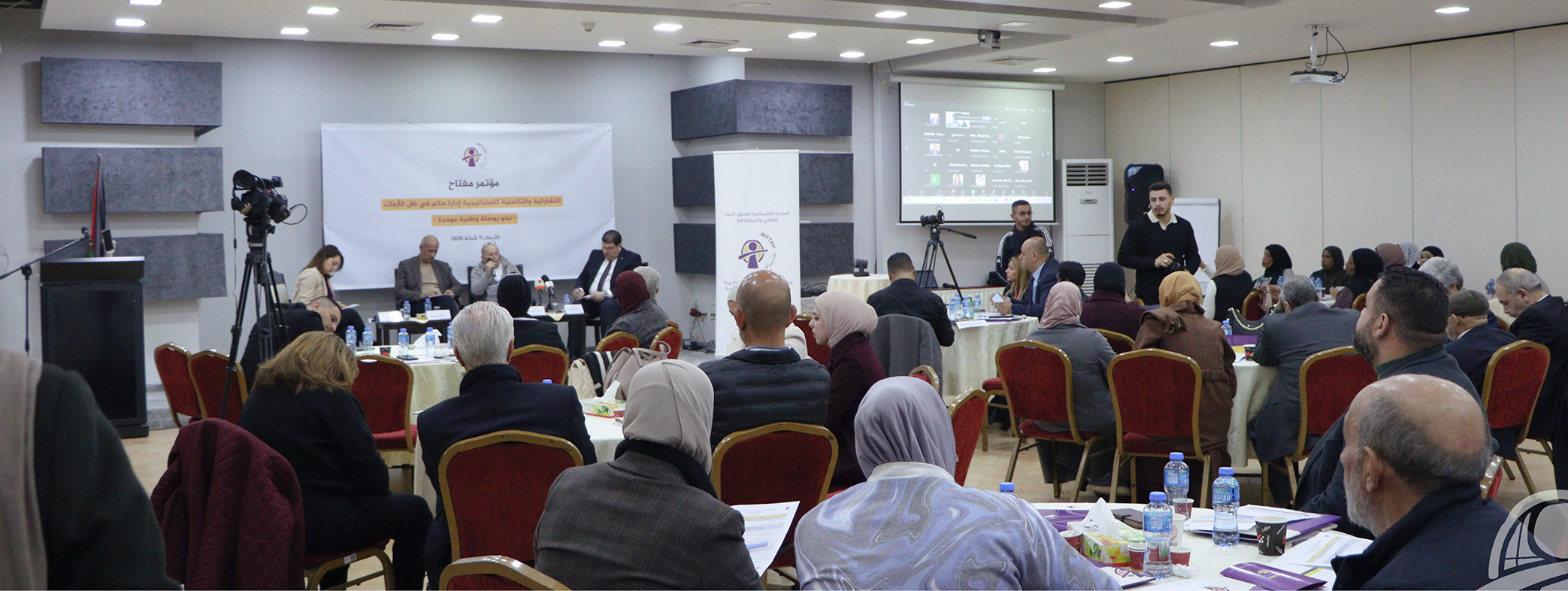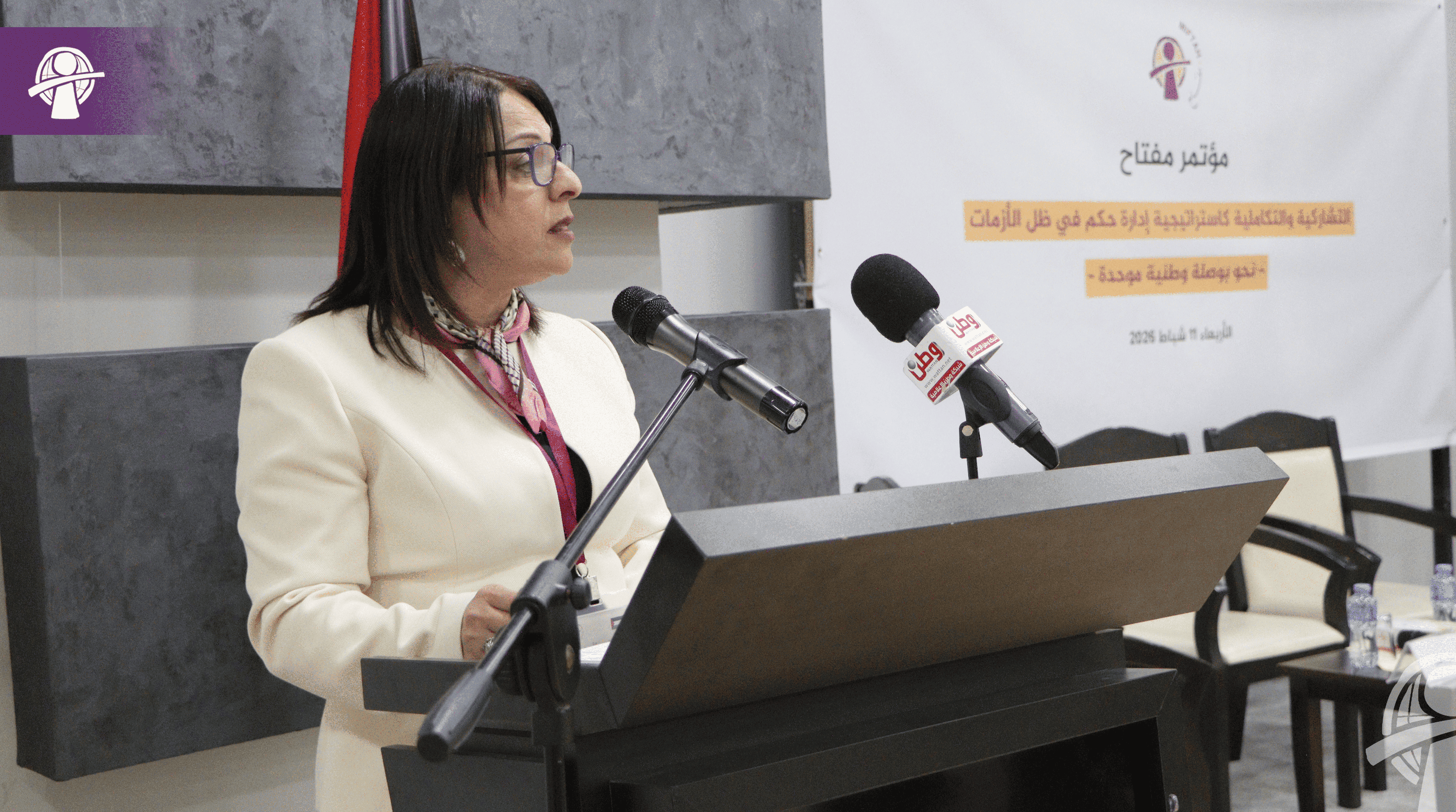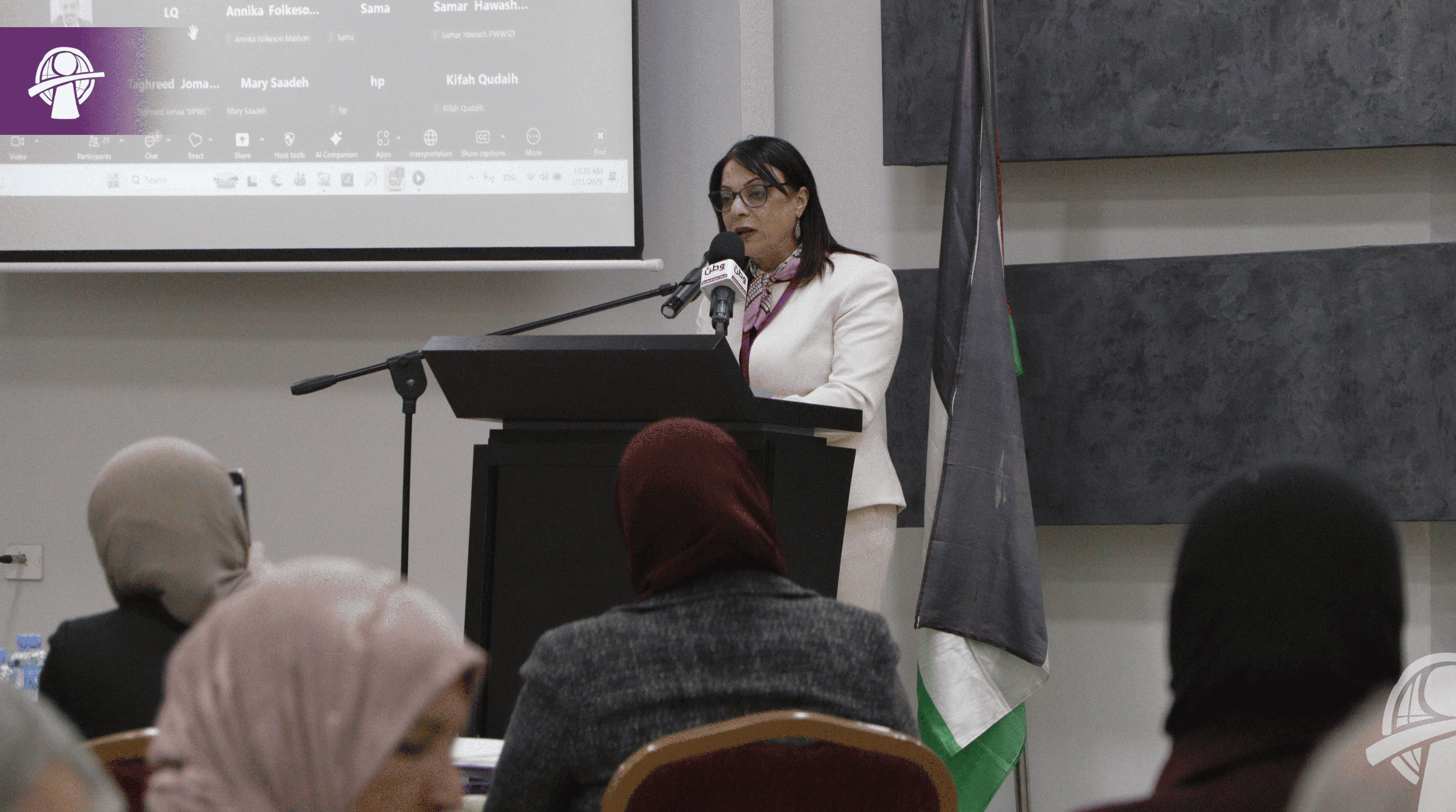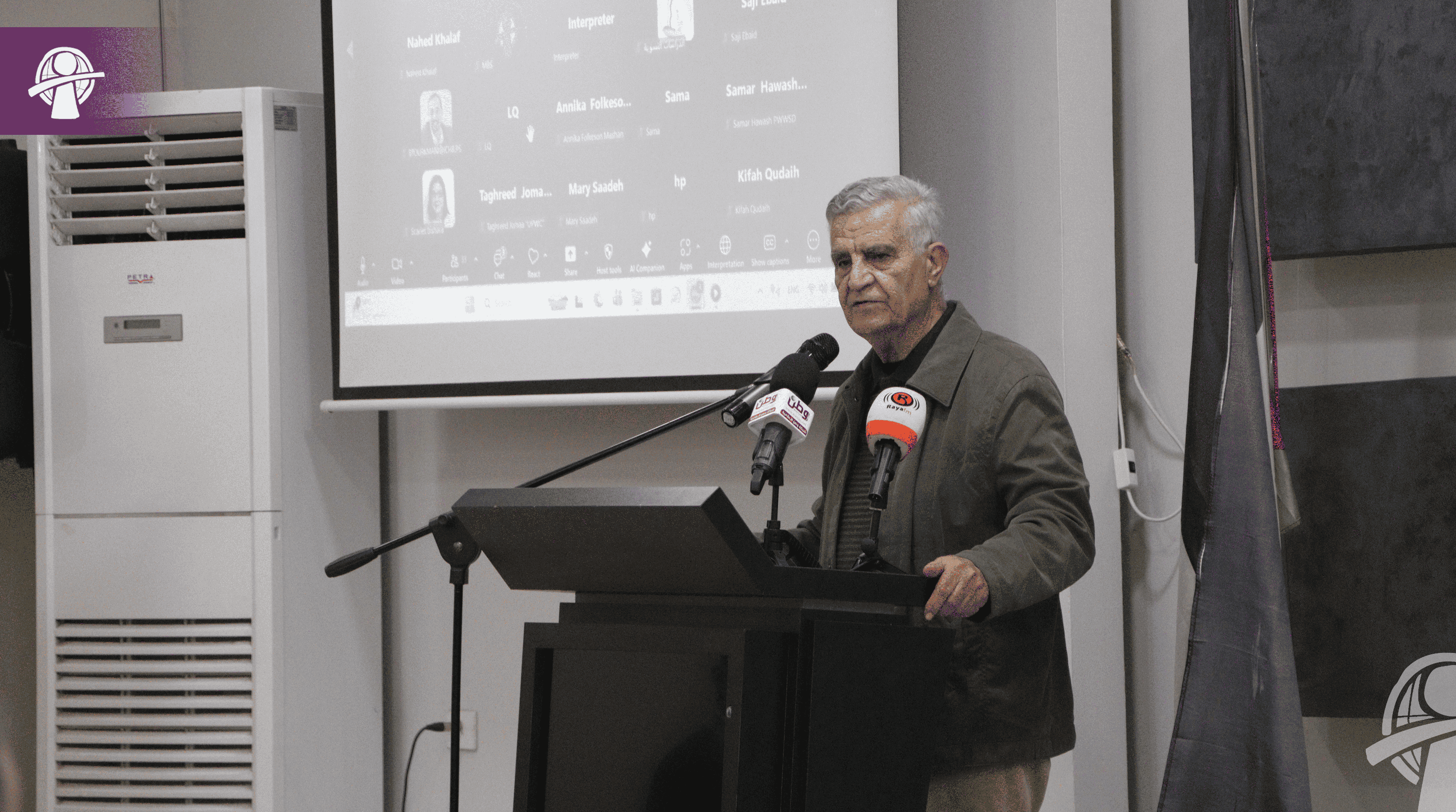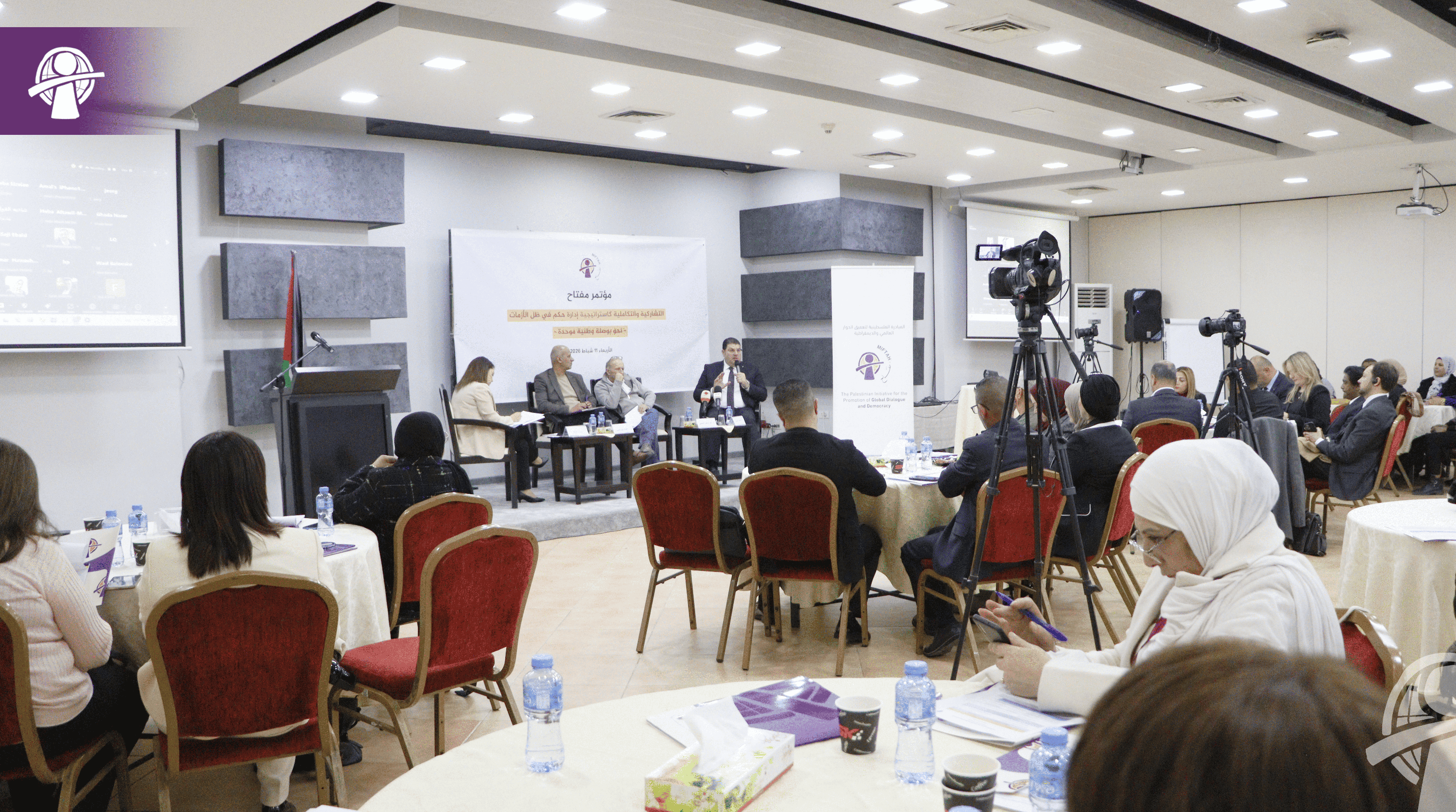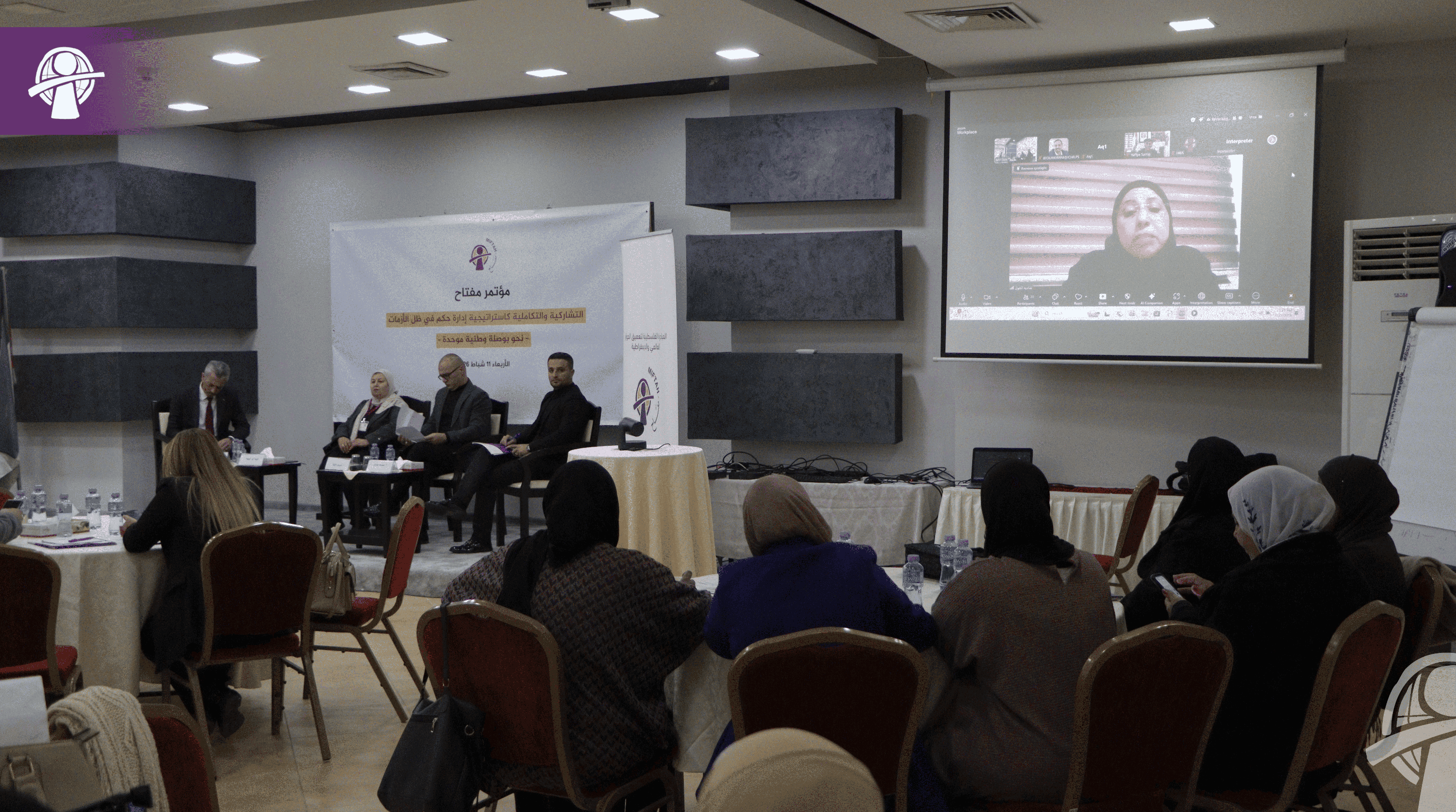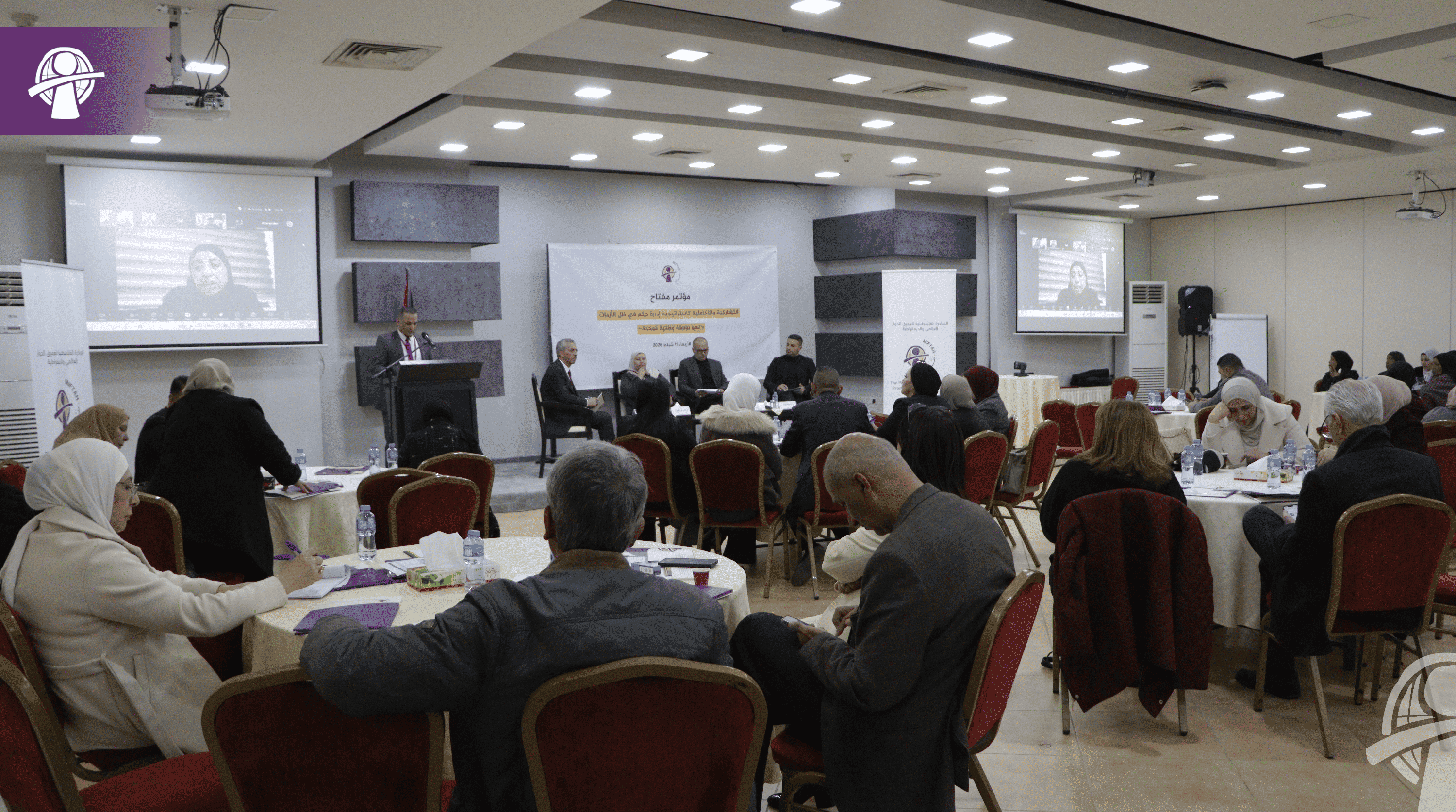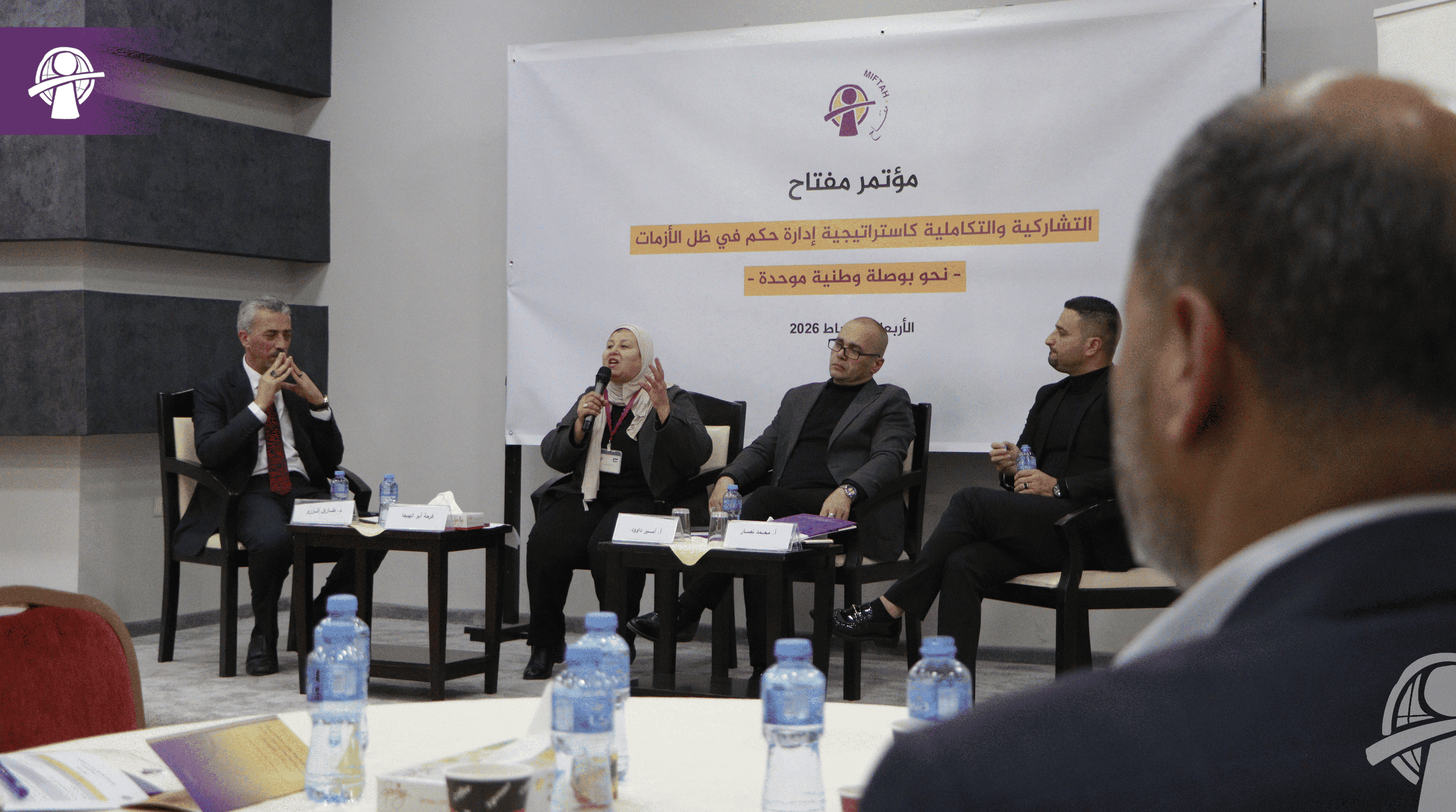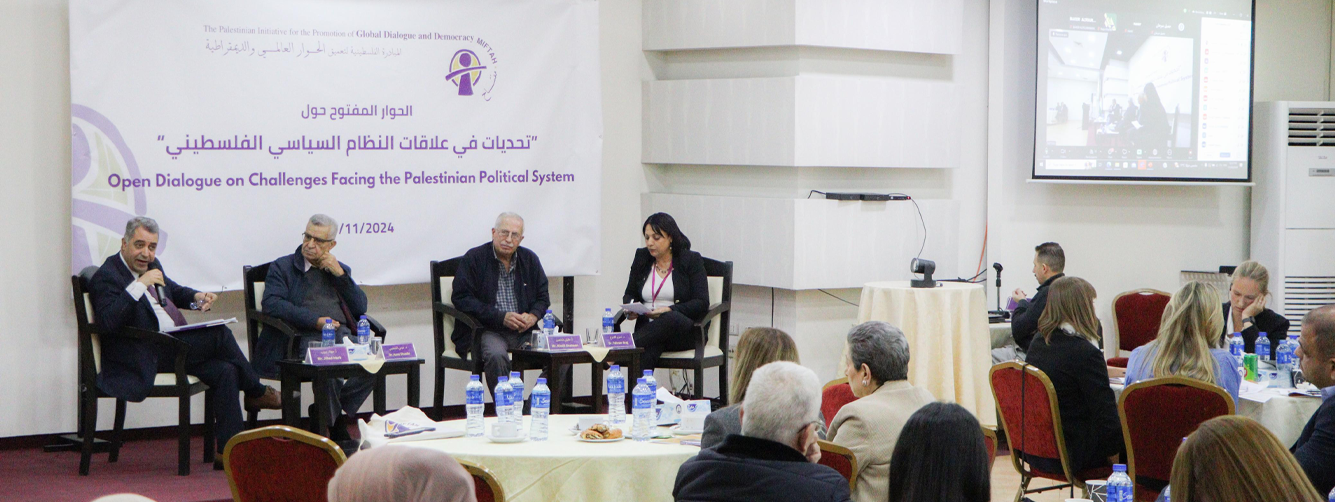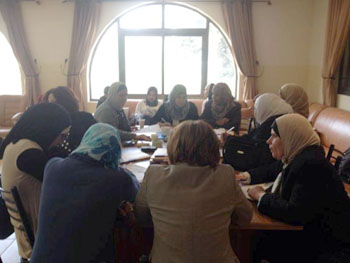
Ramallah – As part of its “Gender Equity and Protection” project, funded by UNFPA, 17 women activists from three districts: Jericho and the Jordan Valley, Nablus and Hebron, participated in a workshop organized by MIFTAH, which focused on a review of the activities in the 2013-2015 strategic plan for the UN Resolution 1325 coalition.
Outputs for 2013-2014
Nablus district:
Four hundred people participated in meetings and learned about Resolution 1325, and who now have increased awareness about the importance of the resolution and its direct relationship to the Palestinian reality (women prisoners, refugees, women living close to Israeli settlements). Two workshops were organized around the sexual harassment and reproductive health through the Women’s Committee. At least 10 films were shown to around 200 people about the concept of violence and its types, namely youth violence. Also documentary films about “prisoner violence, settler violence and family violence” were shown. Ten field visits were made and women’s activities were held in areas in close proximity to the settlements. A local nucleus for the General Women’s Union was formed. Also, activities were held in solidarity with refugee camps in the Diaspora and letters were sent out to the media describing the status of female prisoners.
Hebron district:
A total of 20 violations were documented in the old city of Hebron and in the refugee camps of Hebron and Bethlehem. These violations included health-related issues such as abortion, verbal, physical and sexual harassment, lack of freedom of movement, access to public and basic services, follow-up on maternal issues, shedding light on marginalized areas and monitoring the basic needs of women in the old city and in the camps, in addition to further understanding the concept of Resolution 1325 and its meaning to experts and specialists.
The meetings were very bold in terms of the issues posed, especially regarding sexually-transmitted diseases and reproductive health in relation to Resolution 1325. Around 500 male and female youths benefited from these meetings, in particular university students. Several flyers and brochures were printed on these subjects.
A group of marginalized women were targeted to be part of the women’s political participation initiative. This allowed for the opportunity to strengthen and deepen their awareness on issues related to political participation, the importance of women and her significance in gender-related decision-making positions. A support group was also formed to complement the work of the women.
Ten meetings were held to raise awareness on Resolution 1325 in all the women’s centers in the Hebron district. One aim was to encourage women to raise their voices and confidently document violations in various districts in addition to participating more in issues that concern women in terms of reaching decision making positions and making marginalized women’s voices heard.
Jericho district
The Jericho and Jordan Valley coalition was able to put 1325 into action by training a group of youths from both sexes on documenting Israeli violations. Two trainers from the youth groups were also trained on 1325 and how to raise awareness among female workers in Israeli settlements on the Resolution and on the Labor Law. They also aimed at raising the overall awareness of these workers to the violence women are subjected to by middlemen. Eight youths were trained from various organizations who will now be able to train other youth groups in addition to the training and awareness raising of 1,300 people from all age groups and various areas on Resolution 1325. Five hundred other male and female participants were trained on documenting violations. In all, 10 cases of house and animal shed demolitions were documented. Another achievement was obtaining work permits from the transportation ministry for a bus company in order to solve the transportation in Jordan Valley areas, especially Jiftlik.
2014 plans for Resolution 1325 coalition
During the meeting, the participants presented proposals for the coalition’s plans for 2014 regarding Resolution 1325 in the Jericho and Jordan Valley, Hebron and Nablus districts in order to continue their efforts to raise awareness on the resolution. The plans entail holding 15 meetings on empowering women and human rights in addition to raising awareness on the issue of settlement middlemen and the so-called economic peace project.
The plan also proposes the formation of a committee of the coalition’s organizations and training this committee on documentation, creating news and portraying them in the media. Another recommendation was to prepare a study on the number of men and women working in the settlements and the number of middlemen, in addition to awareness meetings on the Labor Law. It also includes confronting those in charge of the economic peace project and finding out what the direct results of this project will be. The plan also includes exchange visits for coalitions, summer camps for women to be introduced to Resolution 1325 and a central summer camp for children ages 12-18 in the Jericho and Jordan Valley areas to acquaint them with the resolution. A ‘fun day’ for women working in the settlements is also included in the plan along with union and ministry officials.
For the Hebron district, the 2014 plan proposed holding a summer camp for women from the old city and Tel Rumeida in addition to awareness raising meetings in the camps and in Area C. The plan also included films on women’s issues and visits to other communities, workshops on sexually transmitted diseases and reproductive health. Another recommendation was to set up a support team for documentation of diseases and to hold trainings on economic empowerment. An initiative to document Israeli violations against women prisoners and refugees was also part of the plan.
As for the Nablus district, the plan proposes three training courses for local women on filling out questionnaires to be distributed in the area south of Nablus (Aseera, Qusra, Jaloud) and in the southwest (Sabastiya, Burqa, Deir Sirn) and inside the city, refugee camps and villages directly around it. Awareness workshops will be held in marginalized areas, films shown and violations against women prisoners documented in addition to workshops on women’s rights. The targeted groups include female university students and housewives. A special workshop will be held on the issue of women prisoners revolving around female prisoners and women’s law. The media will be used to disseminate the coalition’s activities and issue press releases on violations by the Israeli occupation.
Myassar Atyani from the freed prisoners’ committee said in her presentation that female prisoners are not merely a number but real people, adding that prisoner salaries are an obligation and an acquired right . She called for integrating freed female prisoners in civil and government society. Atyani also recommended that husbands are included in the health insurance of their freed prisoner wives, especially those who were imprisoned before the Oslo Accords were signed, namely between 1967 and 1990 who have no social security or health insurance.
Obstacles to the plan
The Jericho, Jordan Valley and Hebron coalitions all agreed on the obstacles they faced during 2013, mainly trying to convince people to fill out the questionnaires on the violations. This is because of their lack of confidence in the outputs, saying the solutions were not practical for those who face these attacks. They also cited the difficulties they faced in movement in order to document violations, especially in the Jordan Valley and Hebron and then in speaking about them. This was particularly true among women who were afraid of the consequences from the occupation. Other difficulties cited were problems in field coordination between the coalition organizations, government organizations and civil society organizations in addition to the difficulty in working with universities in this coordination process.
Other obstacles included: lack of a coordinator to follow up on all the initiatives with the members of the coalition.; lack of a clear network between the coalitions in the districts [Jericho, Jordan Valley, Hebron and Nablus]; lack of implementing some of the initiatives due to money constraints and the fact that partner organizations could not contribute along with MIFTAH; lack of networking within the same network in each area; lack of cooperation from male members of the Bedouin societies; lack of funding to follow up and sustain initiatives.
The issues to be focused on in 2014 activities , according to the participants are: violations exclusive to Jericho, the Jordan Valley and Hebron; women’s labor inside settlements; the role of middlemen in this labor market; salary cuts; awareness on reproductive rights and STDs; awareness over Resolution 1325 in general; documenting violations and training on a new questionnaire; labor and health rights among women whereby the message is conveyed to both the beneficiaries and to decision makers; training clergymen and religious preachers [male and female] on the resolution; documenting violations in new areas such as Tel Rumeida, Fawar and Arroub camps and other Bethlehem-area camps and waging an awareness campaign among students and women on the issue of unsafe abortions.



